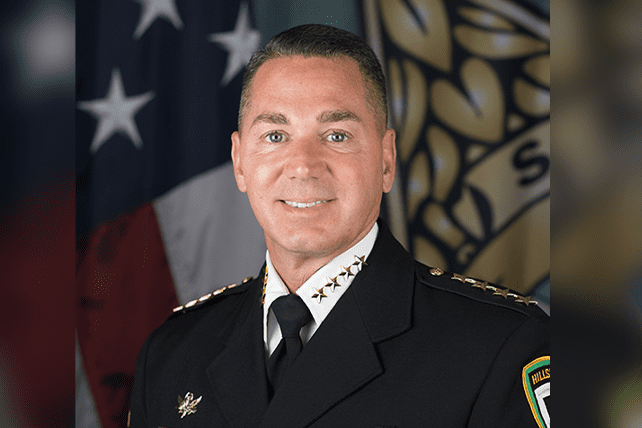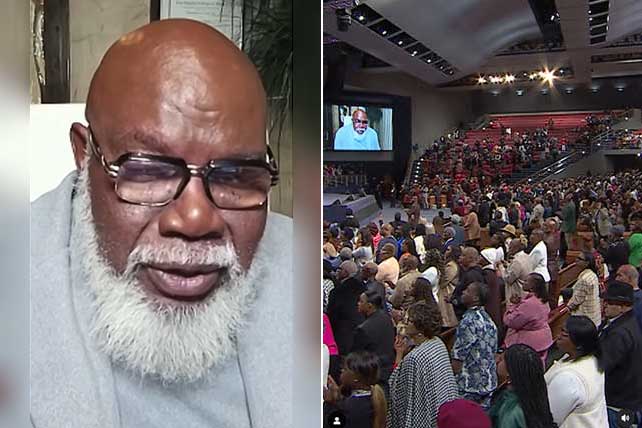Nona Jones on The Stetzer ChurchLeaders Podcast.mp3: this mp3 audio file was automatically transcribed by Sonix with the best speech-to-text algorithms. This transcript may contain errors.
Ed Stetzer:
The Setzer Church’s podcast is part of the Church Leaders Podcast Network, which is dedicated to resourcing church leaders in order to help them face the complexities of ministry. Today, the Church Leaders Podcast Network supports pastors and ministry leaders by challenging assumptions, by providing insights and offering practical advice and solutions and steps that will help church leaders navigate the variety of cultures and contexts that we’re serving in. Learn more at Church leaders.com/podcast network.
Voice Over:
Welcome to the Stetzer Church Leaders podcast, conversations with today’s top ministry leaders to help you lead better every day. And now here are your hosts, Ed Stetzer and Daniel Yang.
Daniel Yang:
Welcome to the Setzer Church Leaders Podcast, where we’re helping Christian leaders navigate and lead through the cultural issues of our day. My name is Daniel Yang, national director of Churches of Welcome at World Relief. And today we’re talking with Nona Jones. Nona is a preacher, business executive, author and entrepreneur. She is a global ambassador for YouVersion and the best selling author of Killing Comparison and Success from the Inside Out. Her latest book is The Gift of Rejection Harness Your Pain to Propel Your Purpose. If you enjoy our interviews, make sure you like and follow us on Apple Podcasts. Now let’s go to Ed Stetzer, editor in chief of Outreach Magazine and the Dean of the Talbot School of Theology.
Ed Stetzer:
Dawna, thanks for being back on the podcast. So that’s super fun. You seem to like crank out a brilliant book every year or so. I’m like, I’m like six years between. Oh goodness. Lately.
Nona Jones:
That’s because you’re writing, like, full encyclopedias.
Ed Stetzer:
I need to stop writing articles too. But anyway, um, so the new book is actually, as we already announced, but the new book is The Gift of rejection. Harness your plan to propel your purpose. That’s a lot of peas in that, by the way. Um, all right. So I mean rejection, like no one wants to be rejected. So tell me, what’s been your own experience with that that maybe sparked some of these topics? Yeah.
Nona Jones:
Well, um, let me tell you, first and foremost, I know that the title is quite paradoxical. It is, um, and I will say it’s something that God revealed to me. And I’ll tell you what happened. And this has nothing to do with ministry, but this is just real life. So when I was in high school, um, I met and fell in love with a guy, and he was a great guy. Smart, just, you know, sophisticated, athletic, all the things. And he was actually my first boyfriend. And, um, one summer he had to go away to do an internship with a state senator because he wanted to become a politician eventually. And I remember when he was gone, he reached out to me and he kept saying, hey, when I come back, we’re going to go out. We’re going to do all these fun things. Well. So he finally tells me he’s coming back one weekend and he wants to go to the movies. And I went and got my hair done, got my nails done, got a new outfit. I was so excited. And about an hour before we were supposed to go, he said to me, hey, I can’t go. Family emergency. We’ll have to reschedule. And of course I was bummed, but I reached out to a few friends and I said, hey guys, you want to go to the movies? I’m already dressed, ready to go. And so we went to the movies. Now, the thing to know is, the movie theater that we decided to go to required us to drive past other movie theaters. Okay. But we go to this movie theater.
Nona Jones:
We’re standing in line to buy our tickets, and I happen to look over and I see my boyfriend holding hands with another girl. Oh, my. And as you can imagine, that was incredibly shocking. And I was so hurt by it. And I even had friends who were with me. They were like, oh my gosh, no, no, he’s a jerk, you know? Just don’t don’t pay attention to him. Whatever. So, you know, the days go by, he calls me, he’s trying to apologize. I never take his call and never talk to him again. But fast forward about, I don’t know, 15 years. I’m working at Facebook and a pastor friend of mine reaches out and he says, hey, can you call me? So give them a call. And he says, I need your help. Taking down the Facebook page of one of my spiritual sons, his mentee, and I said, I’ve never had anyone ask me to take their page down. I’ve had people ask to put it back up when it got taken down and he was just like, listen, there are people who are saying really mean things on his page. And I just, I don’t want him to be remembered for the worst thing he ever did. And I was just like, okay. So I said, send me the link and I’ll see what I can do. Right. So I clicked the link and staring back at me is a picture of my ex-boyfriend from high school. Oh, gosh. And I scroll down and I’m reading comments on his page and people are saying things like, serves him right.
Nona Jones:
Um, cheaters get what they deserve. I can’t believe he called himself a man of God. And I go on Google and I search his name and immediately, article after article after article pops up, this guy was murdered by his mistress who also tried to kill his wife. And after his death, a bunch of women came out and said that he had been, you know, with them too. And in that moment, editor I. I thanked God, of course, for the protection that that that he granted me. But I also, of course, felt bad about his wife. And it was in that moment that I heard the Lord say, no, no, you’ve been looking at rejection all wrong. Like all these years you’ve been angry and you’ve been upset because of what he did. But what you didn’t realize is that I was actually protecting you all along. And he said, rejection in my hands is a gift. And it caused me to look back over the arc of my life. Like personally, professionally, romantically, relationally, all the rejections I had experienced. And I realized that in every single circumstance, yes, it was painful. Absolutely. It was painful. But pain was just the wrapping paper because there was a gift on the inside. There were lessons that it taught me about myself, that it taught me about other people, and even about God. That ultimately served my purpose. And so that’s the backstory for where the the message came from is just realizing in every rejection there is something that God can and is doing that works for our good and his glory. Yeah.
Ed Stetzer:
So, I mean, pastors get rejected all the time. Matter of fact, you can get a little bit, like, triggered when the phone. Hey, pastor, I want to meet. I want to talk. Here comes the rejection. Because it doesn’t it tends to. Rejection in pastoral ministry tends to happen in like phases. So you can feel the phases that are sort of going. And so sometimes they’re not sure how to respond. Like they get their guard up. But sometimes it’s as bad as people being fired from churches. Maybe for cause, maybe for without cause. So you and your husband lead. What’s the name of your church? Open door. Church. Open door church. That’s right. Which I was just learning some of the history of it from your husband. So that’s fascinating. So. So how do you navigate that in church leadership when rejection is from people that love Jesus and supposedly love you and you’re still maybe in church together, maybe you’re not anymore?
Nona Jones:
Well, I will say this, um, I think one of the least discussed forms of trauma is the trauma that pastors carry when people walk away. You know, I think when you go into ministry, you go in because you love people. You love the Word of God. You want to see people grow in their faith and grow and mature in the things of God. And so there’s a level of vulnerability as a pastor that you just have to have in order to love people, right? Like, you can’t love someone while also having a hard heart. You cannot love someone while also having walls that separate you from them. So there is vulnerability there. And I do think that we have many pastors that have literally left the vocation because they have been hurt by the people they were called to serve. One of the things that I would say, and this is one of the gifts that I talk about in the book, is that the gift of rejection reveals people’s role in your destiny. And what I mean by that is sometimes we can get so fixated as as pastors and ministry leaders, we get so fixated on the people that we’ve been called to serve, that we become in love with them instead of loving them. Two different things, right? When you’re in love with someone, their decision to abandon you or their decision to, let’s say, fire you, right? They literally leave the church. That’s almost like a form of firing. Um, it can cause you to question your own sense of worth and identity. But what God revealed to me is that there’s actually two types of people in your life. There are those who are attached and those who are assigned. The difference is when a person is attached to you, they’re connected to you for as long as the relationship benefits them.
Nona Jones:
As soon as the relationship begins to head in a direction they don’t want to go in, they will detach. And I think as human beings, when we experience that, it triggers insecurity because we’re like, what did I do, right? What can I do differently to make you stay? Um, but then there are people who are assigned to us, and those are the people who are not in the relationship for what they can get out of it. They’re in the relationship for what they can contribute to it. And I think the mistake that we have, we make as pastors, and I’m guilty of this myself, is that when a member or someone that we’ve been called to serve begins to detach, we’ll shift our energy away from the people who are assigned to us to try to keep that person attached to us. And I’ve done that with people in our church who I just, I worked so hard to make them stay because I took their leaving as an indictment on my worth. But what God was causing me to see in that situation was, wait, there are people connected to you who are for you and they are assigned to you. And so we have to train ourselves as pastors to stay focused on that. And when somebody detaches and they walk away, or they decide that maybe we’re not the pastor that they thought they wanted, that’s not an indictment on our worth. That just means that the role that they were supposed to play in our lives has come to an end. And that is a natural transition, and we have to stop looking at it as something is wrong with me.
Ed Stetzer:
It is. And you mentioned what we often call betrayal trauma. Actually, the next issue of Outreach Magazine, we’ve got this article by Margaret Diddams, an organization industrial psychologist, about betrayal trauma in pastors. And so it’s a thing. It’s a thing. And, you know, even like having categories, I think we name things to help us navigate things. So you’re like, okay, some of these people are assigned to you. Some. But but so but how do you know? Like you don’t really know. And then the rejection comes. And then that gives you some categorization to say, well, maybe, you know, we can move on. I heard one pastor say, you’re pastoring a parade. People come into it. Have you ever been in a parade? People come into the parade. People go out of the parade. But how do you not get jaded in that? Oh, man rejection, I don’t know, rejection makes me jaded.
Nona Jones:
So I’m going to tell you, the way that I look at it is I think about John 13 and how you know, Jesus who knew that he was about to be betrayed, and he knew that he was about to be tortured and crucified, knew this was coming in John 13, the disciples didn’t know. This is like, you know, the Last Supper. They don’t know this. And so what Jesus does in this moment of betrayal, he knows what’s coming. He actually removes his outer garments, wraps a towel around his waist, fills a basin with water, bends down and washes the feet of the person who was about to betray him. And I think what he’s doing in that moment, and we don’t talk about this a lot. We know that Jesus is fully God, right? He’s also fully man. And so, yes, he conquered sin and death, but he also conquered the pain of rejection. And how did he do that? He did that by knowing who he was, regardless of the betrayal. And that’s why I said earlier, I think what can happen is when somebody betrays our trust, it can cause us to turn inward and think, what’s wrong with me? What did I do? Jesus knew he was going to be betrayed. And as pastors, we have to know that it’s going to happen. But we can’t let it change us. We have to still be committed to doing what God has called us to do. And I think that’s the example that Jesus gives us. And then, of course, he goes on to say, I think it’s in verse 3435. You know, I give you a new command, um, that you would love one another as I have loved you. And then he says, by this they will know that you are my disciples by how you love one another. Yes. We will be betrayed. Yes, we will be rejected. We’ll be humiliated. We’ll be cancelled. We’ll be abandoned. All the things. And yet we still have to be who God has called us to be.
Ed Stetzer:
And that keeps coming back to that resilience of just standing with the Lord and what he and who he’s called you to be. Okay, but nobody wants to experience the pain of rejection. Of course we all do. Um, could you like one of the things you talk about is you come to see rejection as a teacher instead of an enemy. What does that look like? Is it always a teacher, or is it sometimes a teacher? And then what does it look like when it is a teacher? It’s such a good question.
Nona Jones:
So yeah, what I have learned in order to deal with the pain of the rejection is you have to be able to shift your posture away from being a victim to being a student. So if you think about it, when somebody does something that’s painful, like, let’s say you give the best years of your life to someone and they abandon you, they leave you for somebody else. Um, that is deeply painful and traumatizing and that can actually end up changing you so that you don’t trust people anymore. Or you can put yourself in the posture of a student and you can begin to consider, okay, what is it that I believed about myself that caused me to stay in a relationship with someone who probably over time, had demonstrated signs that they were not fully committed? Like, what is it about me that caused me to hang on to someone that didn’t think I was worth hanging on to? Those are questions that we have to ask, and then we have to recognize that that person is also teaching us about them, right? Like those are lessons that we can learn about them. Maybe they’re not who we thought they were. Maybe they’re not as trustworthy as we thought they were. But then there’s also lessons we can learn about God. And what is that? Deuteronomy 31 and six God makes a promise I will never leave you. I will never forsake you. And so he tells us, I will never physically nor emotionally separate myself from you. But in in periods of rejection, we get so focused on who walked away that we forget who never left. And so that becomes an opportunity to learn God in a new way, at a texture to our faith, to say, you know what? Lord, you said that you would never leave me nor forsake me. I feel like I have been abandoned and forsaken. I need you to show up in a way that reminds me that you are true to your word.
Ed Stetzer:
Interesting. I do think that, you know, it’s hard for some people to face rejection, and sometimes it can be a teacher because there’s a reason. Sometimes people keep rejecting you. Yeah, it might be something you’re. So how do you like, how do you like look at that. Without then having such a heavy level of introspection that you’re actually, you know, shaming and blaming yourself? Yeah. Like, where’s that line?
Nona Jones:
Yeah, I think so. That’s such an important question. So I think where the shame comes in is when we accept full responsibility for another person’s choice, what we have to realize is that in every situation, we may have only 1% of the responsibility. They may have 99%. But there’s always something that we can learn. And it’s not about owning it and saying, it’s my fault I’m defective. It’s about saying, how can I learn and how can I grow from this? I think that type of a posture is what will help you to defeat shame. And Satan would love nothing more than for us to live under the bondage of shame. But we know that we’ve been called to live in freedom. So I think that it starts with that recognition.
Ed Stetzer:
So starting with that and then avoiding that. So then how does it become okay if people keep rejecting my leadership? Maybe I’m not a good leader. Yes. So how do I use rejection as a teacher in that way?
Nona Jones:
I think you have to look at the frequency, right? It’s like if I am experiencing the exact same repetitive experience over and over again, well, I’m the common denominator. And so at some point I have to recognize that there may be some parts of me that need to change. And I will tell you I’ll give you a personal example. Um, you know, when I was a young executive, I was very ambitious. And, you know, I wanted to be known as a strong leader. And so I had a few situations with team members that left my team. And I think the first couple of times that it happened, I was able to just say, oh, you know, it’s them. You know, they can’t stand the pressure. But after it happened, you know, 3 or 4 times I had to recognize, wait a minute, I’m showing up in a way that is causing people to leave the team. It’s not that they’re incapable. It’s not that they’re incompetent. It’s that something’s going on with me. And so I was able to to pivot, and I was able to learn some new competencies to help me show up in a better way.
Ed Stetzer:
Fascinating. Okay. Um, one of my deep concerns. Remember, my ministry is primarily pastors. Your ministry is, like, cool stuff. You were like the the faith person at at Facebook.
Nona Jones:
The faith person.
Ed Stetzer:
Is that what the term was?
Nona Jones:
The faith person. I was I was the.
Nona Jones:
I called it the Christian in residence.
Nona Jones:
The Christian in residence.
Ed Stetzer:
But you but you had all different, like, you know, all different faith traditions, right? And then I was then you’re like you versions. You do cool stuff. But I love pastors. I know you love pastors, but but but for me, there’s sometimes seems like there’s maybe a whole category of pastors who just lack self-awareness and keep every year burning down these relationships and and they keep blaming the church. And I want to say, no, no, it’s actually you. So I’m trying to figure out, like, how do you say something as it is you and that’s that. So that recurrence is a key theme. And then if there’s continued rejection you want to address what’s causing that. But then 2020 came and and now pastors are being criticized a higher level than before. Huge decline in trust in all leadership. But pastors as well. So how would we navigate it in a in a time of higher rejection? I think more people have left churches and gone to churches now than probably any time in the last few decades. That’s a lot of rejection. And then all of a sudden, new people who just to remind you pastors, they left their old church and rejected their old pastors. So keep that in mind before you get too excited. So how do you do it in this season of elevated criticism and rejection?
Nona Jones:
I think we have to have a.
Nona Jones:
Perpetual stance of humility, you know, and I think, um, you mentioned the pastors who maybe they have a track record of just kind of, you know, bulldozing people. And the culture is very toxic. I think that humility is honestly the answer. And biblically, you know, look, God said he resists the proud, but he gives grace to the humble. Where we are seeing a lot of pastoral burnout, I would submit, is because there is a decrease of grace. See, grace is the divine ability to accomplish God’s will. I think that whatever God calls you to, he will grace you for. And so if you’re finding yourself frustrated and overwhelmed and exhausted and angry all the time, there comes a point where we have to ask ourselves, I feel like there’s maybe an absence of grace. Well, how do I increase grace through humility? What is humility to you? Humility says, I don’t have all the answers. I don’t know everything. And so I’m willing to consider that other people may have a piece of the puzzle that I’m missing. So let me have a conversation. Let me figure out, you know. Hey, so you left. I listen, I am not trying to make you stay. I am not vilifying you at all. I would just love to hear your experience. And what caused you to learn so.
Ed Stetzer:
Much from just asking exit interviews.
Nona Jones:
Ask it right. Just ask the question.
Nona Jones:
But I think what happens is instead we kind of like dig our heels in and say, well, you know, they they weren’t serious about God anyway. No, they actually were. They were. But there were some things that they experienced that caused them to make that decision.
Ed Stetzer:
And you got to get past the offense to actually get to the learning. Oh my gosh. I think one of my faculty, Gary McIntosh at Talbot, wrote a book called Exit Interviews. I think it was Gary. He’s written a zillion books and he actually looked at why people leave. And so I think by doing that and you’re just my guess is at when you were at, at, I want to say YouVersion, but before that, when you were at Facebook, my guess is you had exit interviews when people left. I mean, every business does that and churches don’t. Yeah. And sometimes it can be something we learn from. And sometimes it’s just because they got unhappy and that’s okay. Okay. All right. So again the title of the book is is The Gift of Rejection. Harness your pain to propel your purpose. And you talk about, well, you actually talk about identifying roots of rejection that shape our behavior. Explain a little bit more of that concept.
Nona Jones:
Yeah.
Nona Jones:
So I think the way that we show up in the present is simply a reflection of things that happened to us in the past. Um, and so things like our formative experiences, how our parents interacted with us, you know, how our teachers interacted with us, words that were spoken over us. Um, I think it’s Proverbs 1821 that says life and death are in the power of the tongue. Well, that word power is the Hebrew word yod, which means hand. What does a hand do? Um, it’s a neutral tool, but hands can can create beautiful works of art. They can build houses that that promote safety. But hands can also pull triggers and stab people. Right. And so the tongue becomes an instrument that can either build up or tear down. And some of us have had words spoken over to us, over us in our formative years that have torn us down and we don’t know it. And so what happens today? To go back to the example of the pastor who maybe is bulldozing people, it’s like, well, the reason why you’re doing that is because you don’t even know you have a chip on your shoulder about words that were spoken over you. And so there’s two primary ways that I think rejection pain gets expressed.
Nona Jones:
One rejection pain. Okay.
Nona Jones:
Yeah. One is implosion. So we implode into self harm. Things like addictions, things like literal physical, self harm, depression, anxiety. We internalize a.
Ed Stetzer:
Lot of pastors, a.
Nona Jones:
Lot of pastors are imploding. But then there’s explosion. And that can actually show up in two ways. On the one front, you can explode into anger, right? You can be hostile, you can be irritable, and people can visibly see that. But there’s actually a second expression of exploding that I think gets no visibility. And that is you can explode into ambition. You can become the kind of person who is never satisfied, the kind of person who you have to constantly be the best, the first you have to have the biggest, the most, and at the at the core of that need to have the best and the biggest and be the first. And all that is, is rejection, pain. You know, it’s it’s the sense that I am not enough, and so I have to achieve more to be enough. And so that’s the kind of virtuous expression of rejection, pain that we reward. We look at pastors that have large churches and they’re multi-site and and we celebrate that. And I’m not saying all pastors, you know, have rejection pain at their core for this, but I do know that quite a few do. If you were to sit down and talk to them, there’s a sense of unfulfillment, no matter how much they have, because what’s motivating and driving that is rejection pain.
Ed Stetzer:
I need to bring you to some church planting meetings. You have a lot of church planters. And I was I was, you know, I grew up in a distant father. Et cetera. Et cetera. And I, my father, are very close now. And but but I would tell you that I always had to do more. I had to do better. I had to prove something. I never figured out who I was proving it to. My father was already happy with me, you know, it’s like. And my Heavenly Father had been happy with the whole time. So? So it is real. It is real. And I think and again, this is where I think your book, The Gift of Rejection Harness Your Pain to Propel your Purpose can be a help to pastors and church leaders, which is sort of our audience. One of the things you talk about is what are some of the gifts that rejection has to offer us? I guess you gave us one example already, which was, let me just say, your opening example was a crazy example. Wow. But what are some gifts that rejection offers us?
Nona Jones:
Um, I think.
Nona Jones:
In addition to I shared, the gift of rejection reveals people’s role in your destiny. I think the gift of rejection also anchors your identity. And what I mean by that is. So, you know, we know the story of David and Goliath. And, um, what’s interesting is before David, you know, faced Goliath on the battlefield, um, Jesse sent him to the battlefield to take lunch to his brothers. And while he was out there, he overheard Goliath taunting the Israelites. And he started to ask the men, the soldiers, like, hey, what’s going on? What’s happening? And while he was asking them this, his oldest brother Eliab looks at him and says, why are you here? And and why are you talking to these people? And you know, who did you leave those few sheep with? And and he starts to call him conceited and wicked. He just starts to rail into David. Right? But David looks at him and he’s like, you know, well, what have I done? Why can’t I even speak? And he turns and he keeps doing what he was doing. And it says that after he did that, Saul overheard him and said, hey, come here. And so if David had taken the rejection he was experiencing from Eliab and basically ran home, if he had been afraid of what he was saying or hurt by what he was saying, Saul would have never heard what David was saying, and he would have never said, come here, David, and there would have never been a David and Goliath.
Nona Jones:
And I bring that up because David knew who he was in spite of the things that Eliab said, you know, you’re wicked, you’re conceited, you know, you just have some few sheep. He knew who he was. And so his identity was anchored to the place where he kept doing what he was doing. And so I think there’s a lot of pastors that unfortunately, our identity has become so tethered to people’s approval and opinions as opposed to who God says we are, that when people reject us, we’re ready to quit. We’re ready to walk away from the vocation. But I think we take a page out of David’s life, and we let the rejection anchor our identity to who God says we are. Because when you know who God says you are and what you’ve been called to do, it doesn’t matter if people walk away, if they stay, if they applaud, if they boo, you’re going to keep doing what God’s called you to.
Ed Stetzer:
Once you’re focused on audience of One, it changes everything. But I will tell you, I mean, I know all that, I believe all that, but I’m still a human. I don’t want to live in a space where I’m rejected and and, you know, and you’ve become a public figure. And, you know, I’m a semi-public figure and people reject I see it online and my kids are amused by it. But I think the first time they probably saw, you know, some online criticism, like, what’s going on? Well, you know, this is the world in which we live. So we live in a world where pastors are rejected, people try to cancel. And how do we build up a resilience to walk through that? What does that look like?
Nona Jones:
So I immediately think about the apostle Paul, who in his moment of just kind of vulnerability and honesty was like, look, I begged God to take this thorn away from me. Like I begged God, take it away. And God said to him, my grace is sufficient for you. And I think that’s the recognition is that, yes, we are human. Rejection is going to happen. Yes, it hurts. And we can pray and beg. Lord, please don’t let anybody ever walk away. Don’t let anybody ever leave me. And God is like, it’s going to happen, but my grace is sufficient for you because my strength is made perfect in weakness. Right. And so I think that’s what we have to recognize is, look, it’s going to happen. Accept the reality. It’s going to happen. Now that we’ve gotten through that, we can seek the face of God for his grace to carry us through what will inevitably happen, which is rejection.
Speaker6:
Mm.
Ed Stetzer:
All right. Any final piece of advice for pastors and church leaders? We’ve talked a lot about a lot of stuff. This is a really good conversation. But they’re doing ministry, you know, trying to kind of maybe find that peace and joy, walk in that peace and joy no matter how people treat them or if they’re rejected or just what final exhortation would you give them? Remind everybody the book is the gift of rejection. Harness your pain to propel your purpose. Nona Jones is the author. Final piece of advice?
Nona Jones:
Yeah.
Nona Jones:
So I would say and I want to speak directly to pastors. So in second Timothy chapter four, the Apostle Paul is writing to Timothy, um, and toward the end of that book, he shares with him that, you know, when when it was time for him to stand trial, that everyone deserted him. All the people who were with him left him. And then he says, May it not be held against them. Why? He says, because the Lord stood at my side. And I think we have to remember that. It’s like if we allow bitterness, if we allow resentment to take up residence in our heart, it will literally kill our effectiveness as ministers of the gospel, because we cannot minister to people who are angry at. And I think the enemy would love nothing more than to have us walking around carrying the pain and the resentment of rejection. But I think instead what we have to do is release it. Forgive people for they know not what they do and realize that God is with you. He will protect you and he is going to glorify himself through you.
Ed Stetzer:
Norah Jones, thanks for being with us. Thank you for having me.
Daniel Yang:
We’ve been talking to Nona Jones. Be sure to check out her book, The Gift of Rejection. Harness Your Pain to Propel Your Purpose. You can learn more about Nona at Nona jones.com. And thanks again for listening to this Church Leaders podcast. You can find more interviews, as well as other great content from ministry leaders at Church leaders.com/podcast. And again, if you found our conversation today helpful, I’d love for you to take a few moments, leave us a review and give us a like and a follow that will help other ministry leaders find us and benefit from our content. Thanks for listening. We’ll see you in the next episode.
Voice Over:
You’ve been listening to the Stetzer Church Leaders podcast for more great interviews as well as articles, videos, and free resources, visit our website at Church leaders.com. Thanks for listening.
Sonix has many features that you’d love including automated subtitles, generate automated summaries powered by AI, upload many different filetypes, powerful integrations and APIs, and easily transcribe your Zoom meetings. Try Sonix for free today.

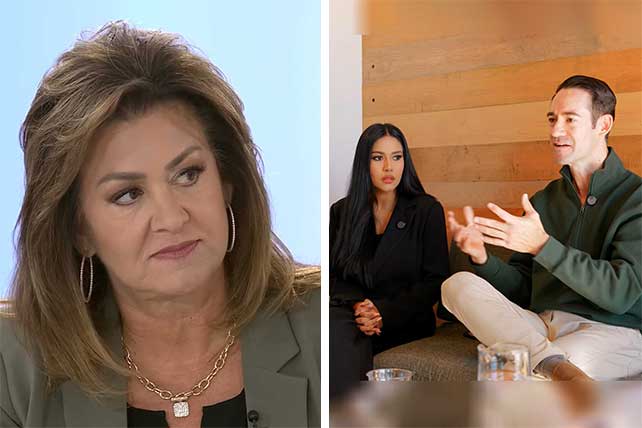
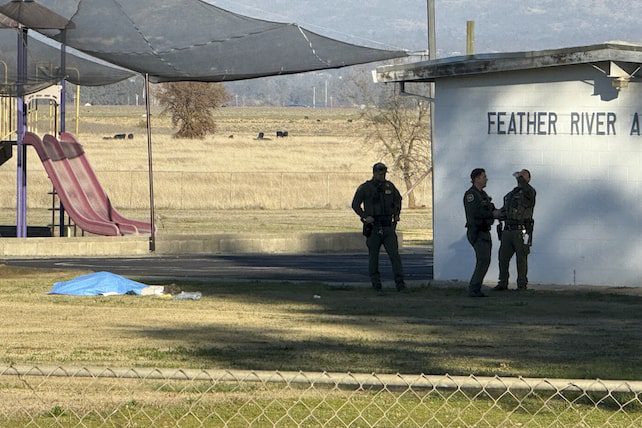

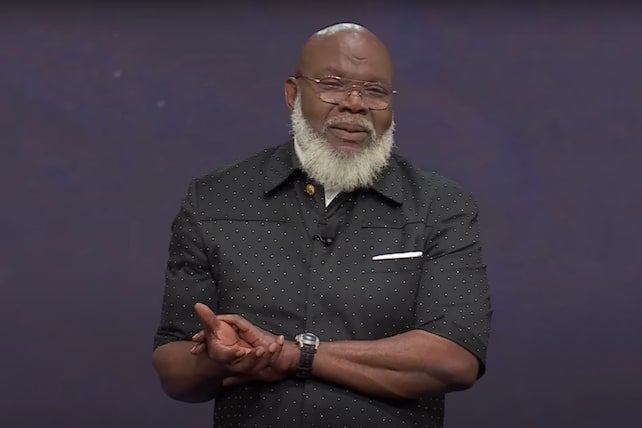

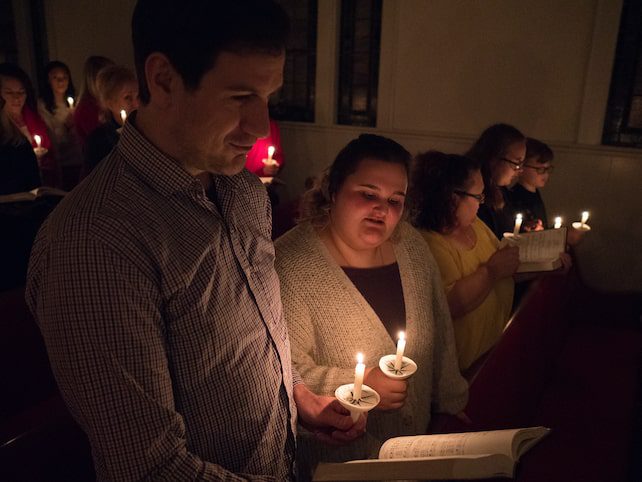
 With the busy swing of Christmas in the church world comes an annual reminder to all
With the busy swing of Christmas in the church world comes an annual reminder to all 

















